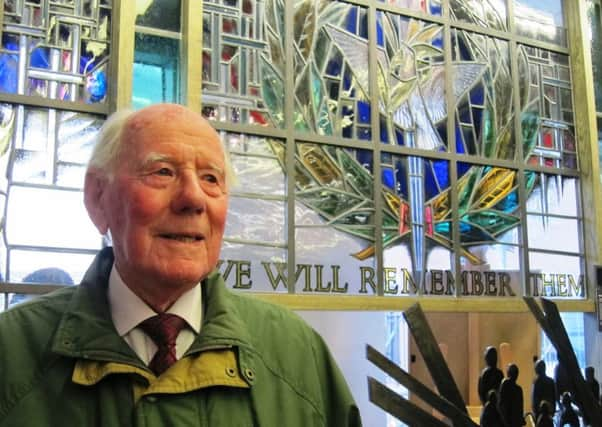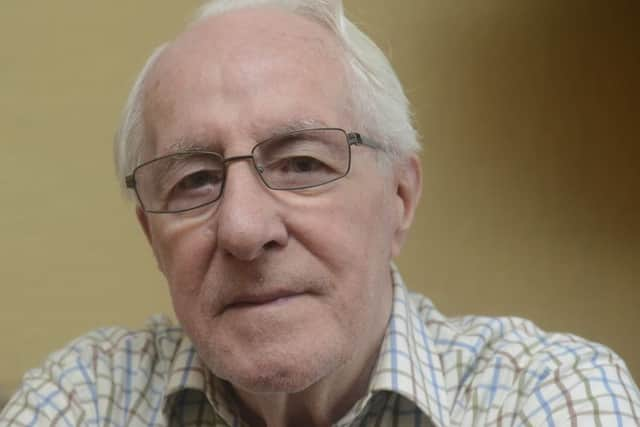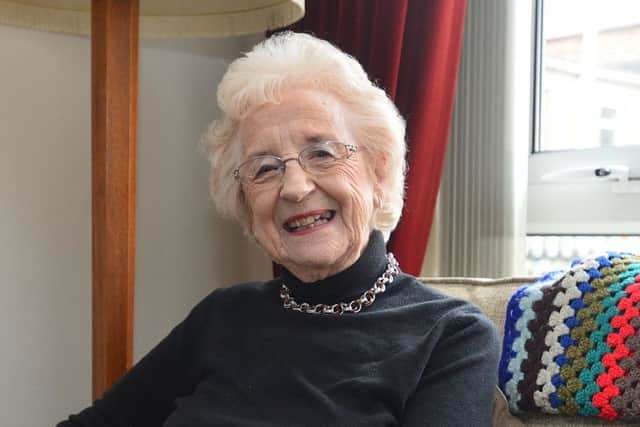‘We saw horrors of Nazi Blitz with our own eyes – politics had nothing to do with it’


All of them have chilling eyewitness recollections of the Nazi bombardment, which killed an estimated 970 people in just four raids – and stressed that people of all political and religious persuasions died in the carnage.
They spoke to the News Letter shortly after the issue hit the headlines thanks to UUP councillor Jeff Dudgeon, who – after years of sluggish progress on a memorial – has now succeeded in getting one added by Belfast City Council as an “emerging project” for its 2019/2020 financial year (see FULL DETAILS HERE), in the hope one can finally be built for the 80th anniversary in 2021.
Advertisement
Hide AdAdvertisement
Hide AdThe UUP has said that the idea of a memorial had been mulled over for years, but was held up by a nationalist/republican desire to link it with a wider re-design of the council’s commemorative statues, making them more inclusive of nationalist figures.


Alec Murray lived off the Shankill Road when, on April 15, 1941, the Nazis struck.
A nearby bomb shelter on Percy Street took a direct hit, killing dozens inside.
The following day he saw the aftermath of the carnage for himself, including “a lady and her child stuck against the wall”, impaled “like a spear”.
Advertisement
Hide AdAdvertisement
Hide AdNow 87 and living in Gilnahirk, east Belfast, he noted that his cousin’s daughter Elaine Murray was killed in the IRA’s Shankill Bomb, and that a memorial plaque for her dead killer had recently been erected in the city.


He has “no time for Sinn Fein”, adding the Blitz “had nothing to do with politics, and they’re trying to make a political fact of it”.
“If they want to put their own memorials up, that’s their vision,” he said.
“But not with the Blitz – that’s entirely different. Everybody stood together in the Blitz. It’s an issue in itself.
Advertisement
Hide AdAdvertisement
Hide Ad“What they do with their other things is nothing to do with us. There’s too many things politicised in this country at the moment.”
Mrs Margaret Wilson, 88, lives in east Belfast. It was there that, as a 10-year-old girl in 1941, a German incendiary bomb plunged through the roof of her house and set it on fire with the family inside.
“It shouldn’t really be a political issue at all,” she said.
“The people that died in the Belfast Blitz were of both persuasions. A memorial to the dead would incorporate people from both sides of the community.
Advertisement
Hide AdAdvertisement
Hide Ad“I mean, we were at war with Germany; it was the Luftwaffe that flattened our city, and people from all sorts of areas died.
“There was nothing political about it. People after the Blitz were so helpful with each other, and it wouldn’t have mattered to them what religion you were or politics you had.”
Cecil Rutledge, 90 and living in Carryduff, remembers a landmine on a parachute descending slowly towards him in his north Belfast home – before a gust of wind caught it, causing it to veer away and explode nearby.
He said: “It should be remembered. A lot of people lost their lives. It wasn’t one side that suffered. Everybody suffered. So why shouldn’t there be a memorial to them? It’s a good idea, right enough.
Advertisement
Hide AdAdvertisement
Hide Ad“In my day Catholic and Protestant were as close together as could be, there was no animosity. Nothing would please me better than people getting on... I’m getting to the end of my days, and I’ve seen it going downhill.”
He added: “They hadn’t names on the bombs saying ‘this is for a Protestant’. They fell on everybody.”